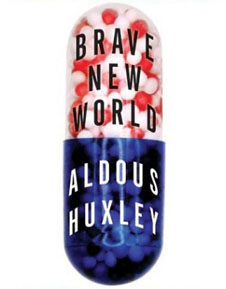12-Year-Old Boy Suspended Because His Mother Refused To Drug HimThe GazetteApr. 02, 2006 |
Popular 
John Hagee Cheers Israel-Iran Battle as 'Gog and Magog War,' Will Lobby Congress Not to Deescalate

Patriot ACT on Steroids: FISA Bill Forces 'An Enormous Range' of Businesses to Act as NSA Spies

Right-Wing Media See Traffic Plummet in Wake of Algorithm Changes by Facebook, Google

Israel to Extend Water Agreement With Jordan 'For Helping Shoot Down Iranian Drones'

Congress Introduces ADL-Backed 'Countering Antisemitism Act' to Police Online Speech
  The case of a 12-year-old Longueuil boy suspended from school when his mother refused to give him Ritalin has sparked concerns over who is in charge of the medicine cabinet. The case of a 12-year-old Longueuil boy suspended from school when his mother refused to give him Ritalin has sparked concerns over who is in charge of the medicine cabinet.Do parents have the right to say "no" when their child's school says they need prescription drugs? "Absolutely, they do," said Montreal family law lawyer Alan Stein. However, Stein said, some parents second-guess themselves when a teacher or school social worker recommends Ritalin, a drug that stimulates the central nervous system and is used mainly to treat attention deficit disorder. Stein was reacting to the case of Gabriel Lavigueur, who was suspended from Ecole Secondaire St. Jean Baptiste in Longueuil on March 20. He remains out of school. After two meetings last week with the boy's mother, Danielle Lavigueur, Stein said he will petition to file a class-action suit this week in her name and on behalf of Quebec parents who believe they have been bullied into putting their children on Ritalin. The Quebec-wide suit is expected to tap into growing concerns about the long-term consequences of the stimulant that has been called "kiddie cocaine," and on how Quebec schools have become increasingly involved in the Ritalin prescription process. To date, parents have been fighting the troubling trend on a case-by-case basis, said Richer Dumais. Dumais is the executive director of a Montreal-based non-profit parents' rights group, the Commission des citoyens pour les droits de l'homme. Over the past year, his group has received 81 complaints of parents being pressured to put their children on Ritalin by a teacher, school principal, board social worker or psychoeducator. The group has documented 13 individual cases involving mostly boys, age 8 through 12, and in schools in Montreal-area school boards, among them the Commission scolaire de Montreal, the Commission scolaire Marguerite Bourgeoys and the Commission scolaire Marie-Victorin. In protest, he said, the group has written letters to the school boards involved, the Quebec College des medecins and to the provincial Education Department. In Quebec, prescriptions for Ritalin doubled between 1999 and 2004, according to IMS Health, a Montreal-based company tracking prescription drug sales. Dumais said those increases mirror the success of the Quebec government's education department's 2000 action plan, a research and community-based program designed to identify schoolchildren at risk and help them succeed. Over the past two years, according to the Education Department, 148,147 Quebec children have been identified as "at risk." Ritalin may be part of their individualized education plan, said ministry spokesperson Francois Lefebvre, but if it is, the drug is prescribed by a doctor. That's well and good, Dumais said, but when a parent is told his or her child will be expelled from school if he or she doesn't take Ritalin, that's coercion. "We're going to see a lot more cases of this kind of thing," he predicted. In one instance documented by his group, he said, "the parent was told by his son's teacher that his son had problems with the neurons in his brain." The parent responded: "Are you a doctor?" In the case of Gabriel Lavigueur, his mother had signed a "plan d'intervention" that identified him as "at risk" and included prescription drugs along with other school, community and home initiatives. But she said she stopped giving her son Ritalin at the beginning of January when he started suffering side effects, including insomnia, loss of appetite and aggressiveness. Simultaneously, she said she also stopped giving him Paxil and another medication, two other drugs he had been prescribed but which are not approved by Health Canada for anyone under the age of 18. At that time, Lavigueur said, her son, who is bright but has been labelled hyperactive with attention deficit disorder, became less agitated. His appetite and ability to sleep returned. But school officials said they also noticed a change in his behaviour. They maintain Gabriel Lavigueur became unmanageable. He was given repeated two- and three-day suspensions in January and February and was eventually suspended indefinitely. Francois Houde is the lawyer representing Commission scolaire Marie-Victorin. Ritalin, Houde said, had nothing to do with Lavigueur's indefinite suspension. Houde said the boy repeatedly failed to follow the school's regulations pertaining to dress, hair colour, behaviour and school performance. He added the school is open to allowing the boy to return if he is willing to follow its ''code de vie" and the intervention plan his mother signed. However, George Mentis, president of National Parents Association, another Montreal group compiling cases, said "it's a Catch-22." When he hears the term "code de vie," he said, "it means medicate your child or else." "It's an alarming trend," Mentis said. On Friday, Mentis and Danielle Lavigueur met with Houde, the board's lawyer and other school officials involved in the case. "They keep saying drugs are not the issue," Mentis said. "But they also say Lavigueur can't come back to school until he follows the intervention plan that mandates drugs." |



